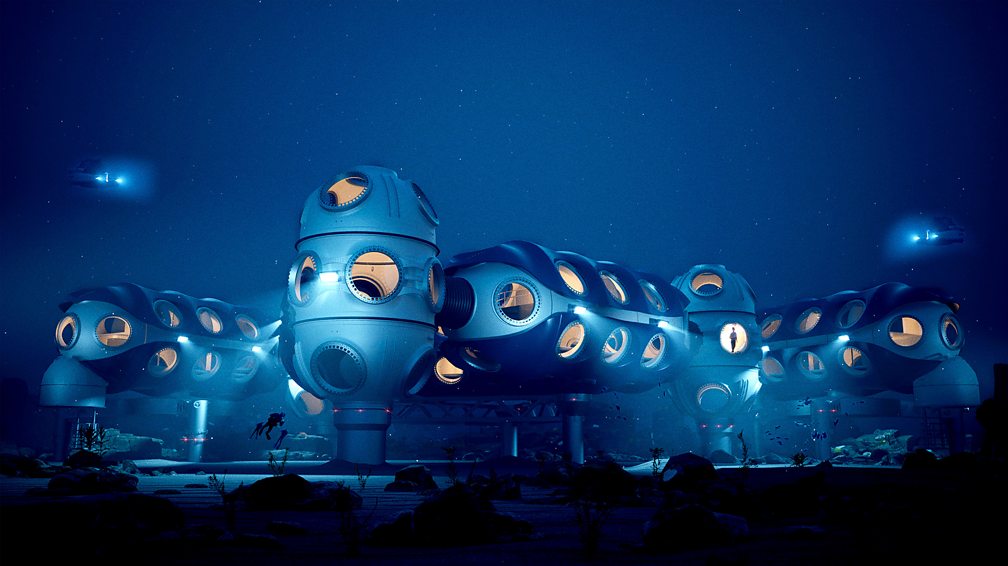Humans have an innate drive to overcome our natural limits – to fly like a bird, to reach outer space. Now, with the help of Deep, could humans learn to live in the depths of the ocean?
The idea of humans living underwater is not new. In the 1960s, the French ocean explorer Jaques-Yves Cousteau built an underwater village. Other projects followed – but none have so far resulted in a continuous human presence under the sea.
The final frontier? How humans could live underwater in 'ocean stations'

In 2026, a crew of six fully-trained aquanauts will be deployed to a new oceanic habitat system – beginning what promises to be the era of humanity's continuous presence underwater.
Deep's system of configurable, customisable and flexible subsea habitats will be self-sufficient, powered by renewable energy, with subsea bio-reactors to sustainably deal with waste, and be independent of the surface. The subsea habitats will allow scientists to live at depth for weeks rather than minutes. They will have access to the water through a moon pool (essentially a hole in the floor that leads out into the ocean), as well as dedicated wet and dry labs.

However, much like spaceflight, life aboard a submarine is widely recognised as one of the most stressful and psychologically demanding experiences. Subsea habitats are often cramped, and inhabitants have to deal with confinement, absence of day/night cues, lack of privacy, and isolation from the outside world.
"We'll be studying whether people can cope with being isolated in a remote place that you just simply cannot leave," says Short. This research lends itself to space travel too, he says. "If we're going to send people to Mars, that will be a three-year mission. It's important to understand how six people would cope with being trapped in a tin together for three years."

No comments:
Post a Comment